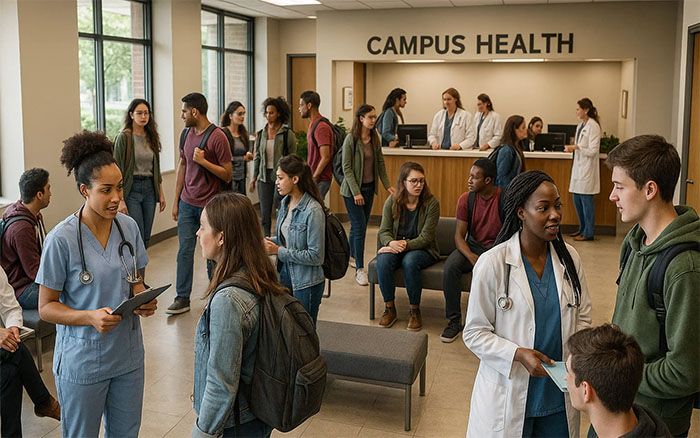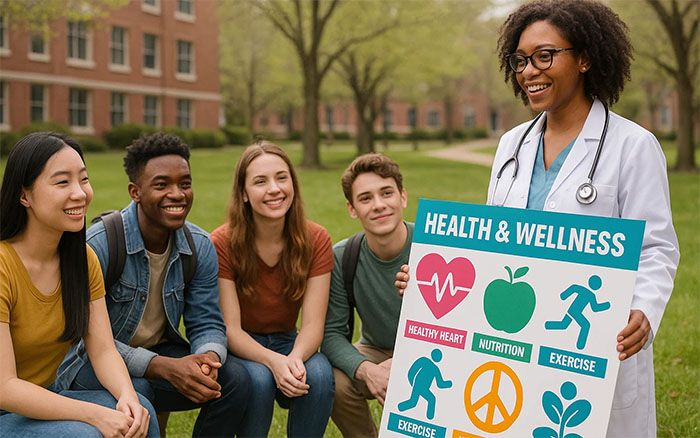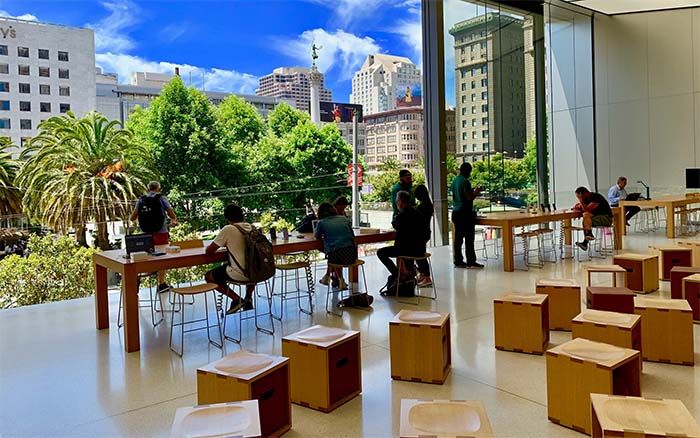Navigating New Beginnings
Fostering First-Year Success through Wellness
In today’s fast-paced and demanding world, the transition to college life can be an overwhelming experience for many first-year students. With new responsibilities, academic challenges, and social pressures, it’s crucial for colleges to provide support systems that help students navigate and succeed. This blog explores various strategies that college leaders can employ to support first-year student success through wellness.
Continue reading to learn how your campus can foster a positive experience for first-year students and increase retention rates.
Promoting Wellness and Self-Care for First-Year Students
Adjusting to college life can be both exciting and stressful for first-year students. To help ease the transition, colleges can encourage wellness and self-care through simple, accessible practices. This might include offering workshops on stress management, mindfulness, or ways to handle challenges in healthy, effective ways.
In addition to workshops, colleges can create designated wellness spaces on campus where students can take breaks, meditate, or practice relaxation techniques. Peer support programs or wellness ambassadors can also play a role in promoting self-care by providing students with relatable guidance and encouragement. Additionally, colleges can offer resources like wellness apps or access to online self-care tools, making it easy for students to integrate healthy habits into their daily routines. Encouraging students to prioritize their well-being early on can lead to long-term benefits, helping them not only manage stress but also improve their overall academic performance and mental health.
Making Students Aware of the Health Center
Amid the whirlwind of classes, assignments, and campus activities, many students might not realize all the resources available to them—especially the health center, which is crucial for their well-being.
Campus health centers do more than treat illnesses; they promote self-care and help students build resilience. For many first-year students, it’s the first time they’ve had to make their own healthcare appointments, which can feel daunting. Colleges can make this process easier by ensuring the health center is well-known, approachable, and accessible. This can include creating clear, student-friendly materials that explain how to access services, what to expect during a visit, and the types of care offered, such as routine checkups, mental health services, and sexual health support.
Along with outreach efforts, health centers can partner with other departments to embed information into orientation programs, student handbooks, and campus tours. Social media, emails, and push notifications through student apps can also help raise awareness. Having health center staff engage in events or set up booths during club fairs or wellness days can further build familiarity and reduce any apprehension students might feel about seeking care. Normalizing visits to the health center can help students feel more comfortable accessing the care they need for a successful college experience.
Increasing Counseling Center Awareness
Having access to mental health support is key for the transition to college life. That’s why making sure students know about campus counseling center services is so important.
In addition to promoting counseling services through emails, campus announcements, and orientation sessions, colleges can use social media to reach students more effectively. Sharing mental health tips, anonymous student testimonials, and reminders about counseling resources can help reduce the stigma around seeking help. Hosting informal meet-and-greets with counselors can also make services feel more approachable.
Training faculty, staff, and resident assistants to spot signs of mental health struggles ensures that students get support even if they don’t actively seek it. Furthermore, peer support programs and mental health ambassadors can also play a role in spreading awareness. Thus, by making counseling services more visible and accessible, colleges help students feel supported and more willing to seek the help they need.
Bringing Awareness to Available Resources
Colleges offer a wide range of resources to help first-year students succeed both academically and personally. For example, libraries, career development offices, group exercise classes, and nutritionists all play a role in supporting students throughout their college journey. However, simply introducing these resources once is not enough. Therefore, colleges must consistently promote them through different channels to ensure students remain aware and can take full advantage of what’s available.
Additionally, colleges can increase awareness by organizing workshops, information sessions, and events that highlight these resources. They can also develop online platforms where students can easily access support and guidance. Moreover, by creating opportunities for students to connect through activities like club fairs, cultural festivals, and student-led discussions, colleges not only provide academic tools but also foster a sense of community and personal growth. This, in turn, helps students build friendships, explore new interests, and feel more integrated into campus life.
Key Takeaways
Inarguably, starting college can be tough on first-year students. This is why creating a campus where students feel supported and have easy access to help is essential for making a difference in their lives. Encouraging students to get involved in clubs and activities can also help foster community among students. Moreover, ensuring that students have access to health and counseling services gives them the tools they need to handle whatever comes their way. Combining these strategies can result in more supportive environments for first-year college students.













